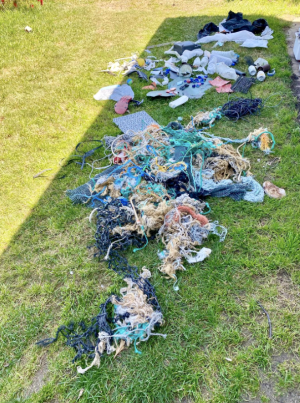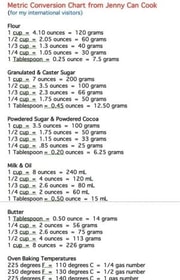Tour Guides Reveal Shocking Truth: How Our Actions Could Trash Heaven on Earth at Kangaroo Island
By
Seia Ibanez
- Replies 1
Kangaroo Island, a jewel off the coast of South Australia, is a haven of natural beauty and wildlife, attracting over 200,000 visitors each year to its pristine shores. But beneath the surface of this paradise, a troubling issue is emerging, one that threatens the very essence of the island's allure. Tour guides Mia Bertetto and Nikki Redman have taken it upon themselves to confront this growing problem head-on, with a message that is as clear as it is urgent: 'Don't garbage paradise.'
The two friends, who have found their calling in showcasing the island's wonders to tourists, have started a social media campaign to raise awareness about the litter that mars the island's otherwise immaculate beaches and tourist spots. Their campaign is not just about cleaning up; it's about inspiring others to take action and prevent further damage to this unique ecosystem.
Kangaroo Island boasts 509 kilometers of coastline and is home to a diverse range of wildlife, including the iconic kangaroos after which it is named, as well as koalas, echidnas, and a myriad of bird species. The island's small resident population of fewer than 5,000 people is dwarfed by the number of visitors it receives, and with such a high footfall, the impact of human activity is increasingly visible.

The rubbish collected by Bertetto and Redman is a stark reminder of humanity's footprint: fishing debris, plastic bottles, and countless other items that have no place in this natural setting. The duo's dedication to cleaning up the island is both admirable and a call to action. They fill their cars with empty bags, ready to tackle the refuse left behind, and their social media posts show the extent of their hauls, which are both impressive and disheartening.
'It's just heartbreaking sometimes, because you realize it is never-ending,' Bertetto lamented. Yet, their efforts are not in vain. They have sparked a movement, with people reaching out to them, inspired to do their part in keeping the island clean. 'It's making people act, which is the main aim,' Bertetto added.
The frustration at the apathy of some visitors is palpable in Redman's words. She doesn't shy away from confronting those who litter, despite facing abuse at times. Her blunt message resonates with a deep-seated passion for the island she calls home: 'Don't come here and garbage paradise.'
Their approach to encouraging others to join their cause is pragmatic and inclusive. Redman advocates for simply picking up rubbish and disposing of it properly, without the pressure of sorting and weighing. Bertetto, on the other hand, sees value in recording the debris collected, hoping it might shed light on its origins and prevent future pollution.
The issue of marine debris is not just a local concern but a global one, and the work of scientists like Kristian Peters, the scientific officer in charge of the Marine Debris Project with Green Adelaide, is crucial in understanding the impact of human activity on our oceans. His team's research, which involves more than 450 volunteers and spans over a decade, has begun to show the positive effects of bans on single-use plastics, with a noticeable decrease in debris.
However, the complexity of ocean currents means that the problem is far from solved. Peters' research underscores the interconnectedness of our actions and their far-reaching consequences. What happens in Adelaide can affect the shores of Kangaroo Island and beyond, highlighting the need for a global response to the issue of plastic pollution.
As the island gears up for another busy tourist season, Bertetto and Redman continue their laborious work, undeterred by the physical challenges of cleaning rugged coastlines. Their message is simple yet profound: preserve paradise. 'Stop littering and pick rubbish up,' Redman urges. 'It's not my rubbish, but it's my planet.'
The story of these two tour guides is a powerful reminder that each of us holds the responsibility to protect the natural wonders we are privileged to enjoy. Kangaroo Island, a microcosm of the larger environmental challenges we face, serves as a poignant example of what is at stake. It's a call to action for all of us, no matter where we live, to take care of our planet, our shared home.

So, dear members of the Seniors Discount Club, let's take a leaf out of Mia Bertetto and Nikki Redman's book. Whether it's during our travels or in our own backyards, let's commit to leaving places better than we found them. After all, paradise is not just a destination; it's a responsibility. Share your thoughts and experiences with us in the comments below. Have you visited Kangaroo Island, or do you have a similar story of environmental stewardship to tell? Let's inspire each other to make a difference.
The two friends, who have found their calling in showcasing the island's wonders to tourists, have started a social media campaign to raise awareness about the litter that mars the island's otherwise immaculate beaches and tourist spots. Their campaign is not just about cleaning up; it's about inspiring others to take action and prevent further damage to this unique ecosystem.
Kangaroo Island boasts 509 kilometers of coastline and is home to a diverse range of wildlife, including the iconic kangaroos after which it is named, as well as koalas, echidnas, and a myriad of bird species. The island's small resident population of fewer than 5,000 people is dwarfed by the number of visitors it receives, and with such a high footfall, the impact of human activity is increasingly visible.

This debris were collected in just one day from a small part of Kangaroo Island. Credit: Nikki Redman
The rubbish collected by Bertetto and Redman is a stark reminder of humanity's footprint: fishing debris, plastic bottles, and countless other items that have no place in this natural setting. The duo's dedication to cleaning up the island is both admirable and a call to action. They fill their cars with empty bags, ready to tackle the refuse left behind, and their social media posts show the extent of their hauls, which are both impressive and disheartening.
'It's just heartbreaking sometimes, because you realize it is never-ending,' Bertetto lamented. Yet, their efforts are not in vain. They have sparked a movement, with people reaching out to them, inspired to do their part in keeping the island clean. 'It's making people act, which is the main aim,' Bertetto added.
The frustration at the apathy of some visitors is palpable in Redman's words. She doesn't shy away from confronting those who litter, despite facing abuse at times. Her blunt message resonates with a deep-seated passion for the island she calls home: 'Don't come here and garbage paradise.'
Their approach to encouraging others to join their cause is pragmatic and inclusive. Redman advocates for simply picking up rubbish and disposing of it properly, without the pressure of sorting and weighing. Bertetto, on the other hand, sees value in recording the debris collected, hoping it might shed light on its origins and prevent future pollution.
The issue of marine debris is not just a local concern but a global one, and the work of scientists like Kristian Peters, the scientific officer in charge of the Marine Debris Project with Green Adelaide, is crucial in understanding the impact of human activity on our oceans. His team's research, which involves more than 450 volunteers and spans over a decade, has begun to show the positive effects of bans on single-use plastics, with a noticeable decrease in debris.
However, the complexity of ocean currents means that the problem is far from solved. Peters' research underscores the interconnectedness of our actions and their far-reaching consequences. What happens in Adelaide can affect the shores of Kangaroo Island and beyond, highlighting the need for a global response to the issue of plastic pollution.
As the island gears up for another busy tourist season, Bertetto and Redman continue their laborious work, undeterred by the physical challenges of cleaning rugged coastlines. Their message is simple yet profound: preserve paradise. 'Stop littering and pick rubbish up,' Redman urges. 'It's not my rubbish, but it's my planet.'
The story of these two tour guides is a powerful reminder that each of us holds the responsibility to protect the natural wonders we are privileged to enjoy. Kangaroo Island, a microcosm of the larger environmental challenges we face, serves as a poignant example of what is at stake. It's a call to action for all of us, no matter where we live, to take care of our planet, our shared home.
Key Takeaways
- Kangaroo Island tour guides Mia Bertetto and Nikki Redman have initiated a social media campaign to clean up the island's rubbish and inspire others.
- They collect litter, including fishing debris and plastic, from the island's beaches and promote their findings on social media to encourage community action.
- Dr. Kristian Peters from Green Adelaide has been analysing long-term data on marine debris, noting reduced pollution following bans on single-use plastics in South Australia.
- Bertetto and Redman continue their efforts to clean up and preserve the island, advocating for others to stop littering and maintain the natural beauty of Kangaroo Island.
So, dear members of the Seniors Discount Club, let's take a leaf out of Mia Bertetto and Nikki Redman's book. Whether it's during our travels or in our own backyards, let's commit to leaving places better than we found them. After all, paradise is not just a destination; it's a responsibility. Share your thoughts and experiences with us in the comments below. Have you visited Kangaroo Island, or do you have a similar story of environmental stewardship to tell? Let's inspire each other to make a difference.






